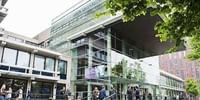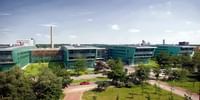The MSc Biology programme is a collaboration between the Institute of Biology Leiden, Naturalis Biodiversity Center and the Institute of Environmental Sciences, giving the programme a broad and diverse scope.
The knowledge that you acquire during the?Biology programme offered by Leiden University will provide an overall understanding of life and how this can be of great value to the society. For example, with your knowledge about DNA, you will be able to work on important topics such as enhancing sustainability in agri- and horticulture, or developing new antibiotics by using fungi or bacteria.?
The programme offers four research specialisations, which optionally can be combined with a more practical-oriented specialisation in communication, education or business. The master?s programme also involves training general skills that will be important for your future career, be it in academia, industry or government.
Why study Biology at Leiden University?- Leiden University offers you a unique combination of knowledge and expertise through close collaboration between three renowned research institutes.
- Within the programme, you have ample opportunities to assemble our own study path based on your own interests and ambitions.
- You have access national biodiversity collections of the National Herbarium and Naturalis, and to state of the art facilities, such as a lab for high throughput genotyping, the Nanopore Sequencing Lab, the Metabolomics Facility, or the Cell Observatory.
Career prospects
The research specialisations prepare you for a PhD programme and/or research positions at universities or research institutes, or for positions at governmental organisations and industry, such as consultancy agencies and bioscience-based companies. Some students start their own company.
Approximately half of our graduates choose a career in scientific research, many as a PhD student. Universities, research institutes, and medical centres are the major employers. Other alumni work at consultancy agencies or in the public domain as policy-makers, science communicators or teachers. Graduates also occupy management positions or have project responsibilities in a wide variety of commercial and non-commercial sectors, from bioscience-based companies to environmental management agencies. Some students even start their own company.










